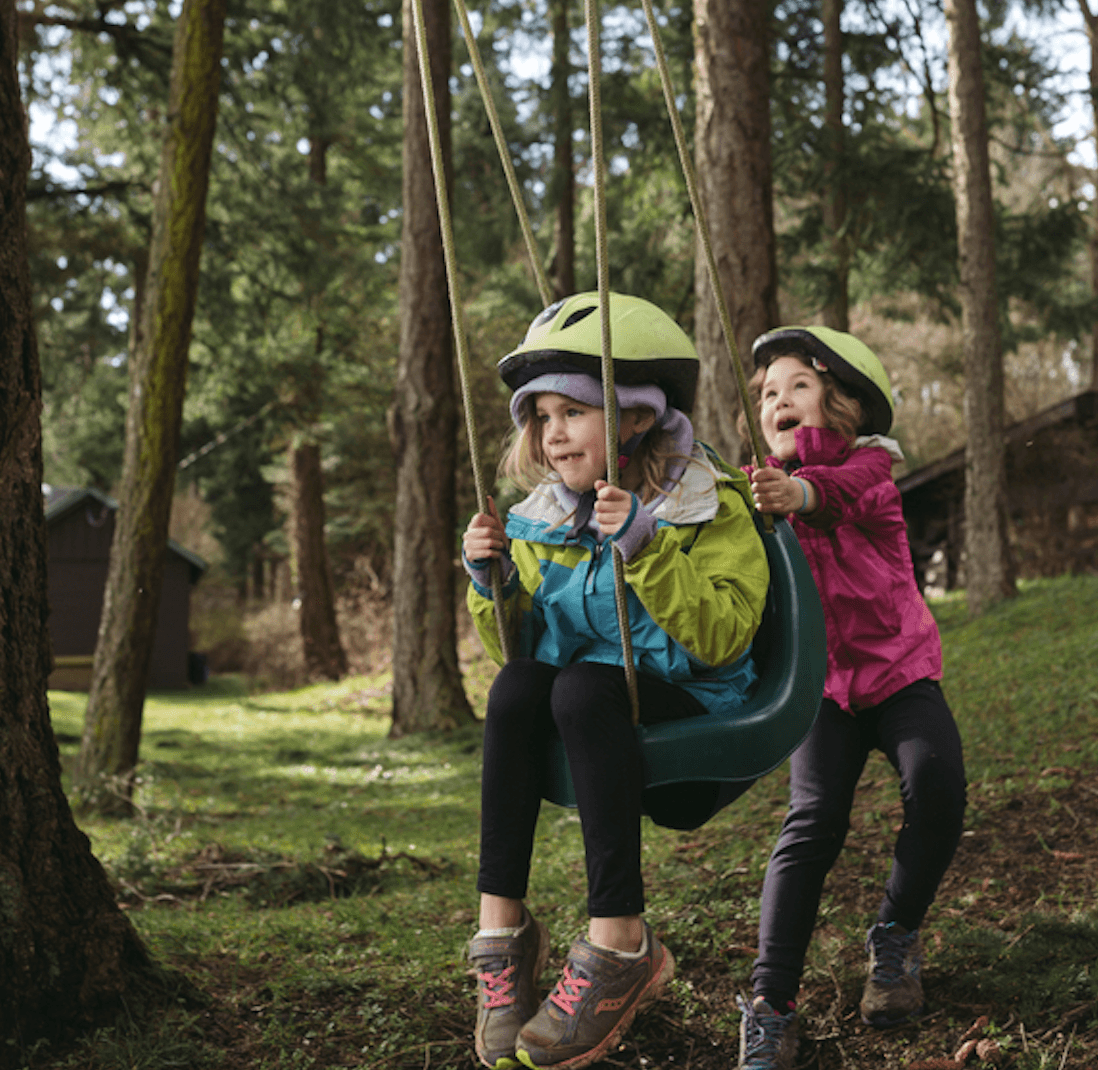Summer safety tips
Summer safety tips
Summer is all about soaking up the sun, splashing in the water, and having fun outside. Here are some tips to keep your summertime safe and healthy.
Summer is all about soaking up the sun, splashing in the water, and having fun outside. Here are some tips to keep your summertime safe and healthy.

Dahlia Rimmon, RDN
Content Writer

Dr. Marcy Borieux
Pediatrician



Skin safety
Children's skin is more susceptible to sunburns and UV damage from the sun than adults. Before going outside, apply sunscreen and dress your kids in protective clothing like rash guards and hats.
Choose a sunscreen with a minimum SPF of 30 with broad-spectrum protection that blocks both UVA and UVB rays.
Sunscreen is only safe for children over 6 months old. For babies under 6 months, keep them shaded and avoid direct sunlight.
Children should also wear sunscreen on cloudy days. Even though the sun is hidden behind clouds, UV rays can still penetrate the skin and cause harm.
Stay indoors during the peak sun hours.
Warm weather can dry out skin. Apply a moisturizing cream or lotion after bath time and before bed to keep skin hydrated.
Water safety
Babies and small children can drown in just two inches of water. Keep a close eye on children around swimming pools, lakes, rivers, kiddie pools, and bathtubs and small containers of water like toilets, buckets, ice chests, or water tables. Make sure they stay covered, have a safety latch, or are kept out of reach.
Children can be quick and slip away in an instant, so keep eyes on them at all times.
Children can take swimming lessons as early as their first birthday. Other types of swimming lessons like Infant Swimming Resource (ISR) are an option for babies under 12 months. ISR lessons teach survival and self-rescue skills.
Only swim in areas with a certified lifeguard.
Never go into the ocean after dark..
Nutrition safety
Keep your kids hydrated throughout the day by offering plenty of water to drink.
Have water bottles nearby and fill them with ice to keep the water cold. Insulated stainless steel bottles keep water cold for hours.
In hot weather, offer hydrating foods like watermelon, cucumbers, berries, homemade fruit pops, and smoothies. If your child doesn't like drinking plain water, try infusing it with citrus fruits or fresh herbs for added flavor.
When eating and cooking outdoors, avoid leaving raw meat or prepared foods in the sun to prevent foodborne illnesses.
When BBQing, use an internal meat thermometer to ensure meats reach a safe internal temperature before eating.
Always supervise open flames or BBQ grills and keep kids’ toys and activities away from these areas for safety.
Weather safety
Avoid outdoor play during peak sun hours to prevent dehydration and heat exhaustion and heat stroke.
Symptoms of heat exhaustion include dizziness, fatigue, weakness, and nausea. If your child shows any of these signs, get them to a cool place right away, offer water, and use a cool bath or washcloth to help lower their temperature. If symptoms persist after an hour, seek medical attention immediately.
Never leave children or pets alone in a car, even for a few minutes, as temperatures can become dangerous quickly.
Avoid swimming or entering any body of water during thunderstorms or lightning.
Insect safety
Apply insect repellent on children before heading outdoors if bugs are around. Use an EPA-registered insect repellent.
Eliminate standing water around your home to reduce the number of mosquitoes and other bugs nearby.
If you live in an area with a lot of insects, plan indoor activities to avoid bug bites, especially in the evening.
When planning an activity in a bug-prone area, dress children in long-sleeve shirts and long pants made from lightweight, breathable fabrics.
Keep doors and windows closed whenever possible. If you want to open them, consider installing screens to keep bugs out.
If you have any questions or concerns about summertime safety, please contact the Summer Health team for personalized guidance and support.
Skin safety
Children's skin is more susceptible to sunburns and UV damage from the sun than adults. Before going outside, apply sunscreen and dress your kids in protective clothing like rash guards and hats.
Choose a sunscreen with a minimum SPF of 30 with broad-spectrum protection that blocks both UVA and UVB rays.
Sunscreen is only safe for children over 6 months old. For babies under 6 months, keep them shaded and avoid direct sunlight.
Children should also wear sunscreen on cloudy days. Even though the sun is hidden behind clouds, UV rays can still penetrate the skin and cause harm.
Stay indoors during the peak sun hours.
Warm weather can dry out skin. Apply a moisturizing cream or lotion after bath time and before bed to keep skin hydrated.
Water safety
Babies and small children can drown in just two inches of water. Keep a close eye on children around swimming pools, lakes, rivers, kiddie pools, and bathtubs and small containers of water like toilets, buckets, ice chests, or water tables. Make sure they stay covered, have a safety latch, or are kept out of reach.
Children can be quick and slip away in an instant, so keep eyes on them at all times.
Children can take swimming lessons as early as their first birthday. Other types of swimming lessons like Infant Swimming Resource (ISR) are an option for babies under 12 months. ISR lessons teach survival and self-rescue skills.
Only swim in areas with a certified lifeguard.
Never go into the ocean after dark..
Nutrition safety
Keep your kids hydrated throughout the day by offering plenty of water to drink.
Have water bottles nearby and fill them with ice to keep the water cold. Insulated stainless steel bottles keep water cold for hours.
In hot weather, offer hydrating foods like watermelon, cucumbers, berries, homemade fruit pops, and smoothies. If your child doesn't like drinking plain water, try infusing it with citrus fruits or fresh herbs for added flavor.
When eating and cooking outdoors, avoid leaving raw meat or prepared foods in the sun to prevent foodborne illnesses.
When BBQing, use an internal meat thermometer to ensure meats reach a safe internal temperature before eating.
Always supervise open flames or BBQ grills and keep kids’ toys and activities away from these areas for safety.
Weather safety
Avoid outdoor play during peak sun hours to prevent dehydration and heat exhaustion and heat stroke.
Symptoms of heat exhaustion include dizziness, fatigue, weakness, and nausea. If your child shows any of these signs, get them to a cool place right away, offer water, and use a cool bath or washcloth to help lower their temperature. If symptoms persist after an hour, seek medical attention immediately.
Never leave children or pets alone in a car, even for a few minutes, as temperatures can become dangerous quickly.
Avoid swimming or entering any body of water during thunderstorms or lightning.
Insect safety
Apply insect repellent on children before heading outdoors if bugs are around. Use an EPA-registered insect repellent.
Eliminate standing water around your home to reduce the number of mosquitoes and other bugs nearby.
If you live in an area with a lot of insects, plan indoor activities to avoid bug bites, especially in the evening.
When planning an activity in a bug-prone area, dress children in long-sleeve shirts and long pants made from lightweight, breathable fabrics.
Keep doors and windows closed whenever possible. If you want to open them, consider installing screens to keep bugs out.
If you have any questions or concerns about summertime safety, please contact the Summer Health team for personalized guidance and support.
References
Summer Health offers fast and reliable pediatric urgent care through online doctors, all via text. Whether you’re worried about your baby's fever, rashes, or other children's health concerns, we provide expert advice and support anytime, right from your phone.

Never miss a post!
Sign up for our newsletter to receive articles and guides directly to your inbox!









